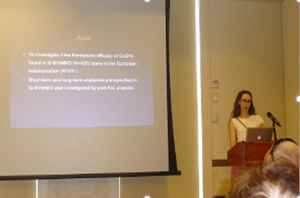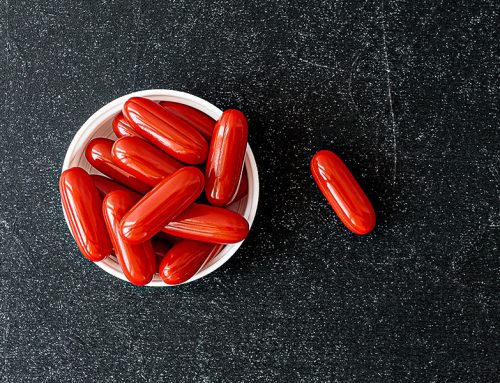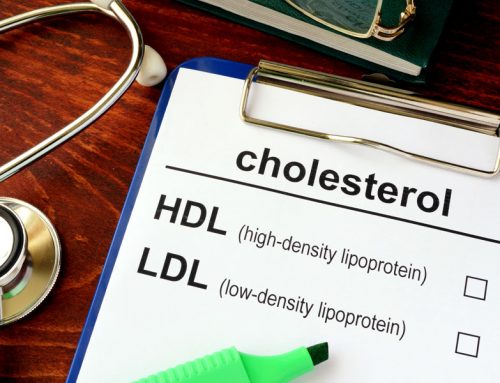
Biochemist Anne-Louise Mortensen shows that serum Coenzyme Q10 levels above 3.0 micrograms per milliliter can be achieved through daily supplementation with 300 milligrams of a patented ubiquinone Coenzyme Q10 supplement. The outcomes of the long-term supplementation of chronic heart failure patients were reduced risk of death from heart disease, reduced risk of death from all causes, reduced incidence of hospitalization, and reduced incidence of other major adverse cardiovascular events.
The Q-Symbio randomized, double-blind, placebo-controlled study of the effect of Coenzyme Q10 adjunctive treatment on the symptoms, adverse cardiovascular events, and survival of chronic heart failure patients is the single best Coenzyme Q10 clinical study that we have.
The Q-Symbio study was a two-year multi-center study enrolling 420 patients with moderate to severe heart failure. The patients were randomly assigned to an active treatment group receiving 100 milligrams of Coenzyme Q10 three times a day or to a group taking matching placebos three times a day [Mortensen 2014]. The Coenzyme Q10 or placebo treatment was given in addition to the conventional heart failure medication. The patients were recruited for the study in several European, Asian, and Australian countries.
Outcomes of the total Q-Symbio study
The long-term adjunctive treatment of heart failure patients with 300 milligrams of a patented ubiquinone Coenzyme Q10 showed significant health benefits:
*** reduced risk of death from heart disease
*** reduced incidence of major adverse cardiovascular events
*** reduced risk of death from all causes
*** reduced incidence of hospitalization
*** improved class placement according to the New York Heart Association (NYHA) classification system
Adequate levels of Coenzyme Q10 are needed for the normal functioning of almost all cells and especially for the normal functioning of the heart muscle cells, which have a constant need for energy. The Q-Symbio study results demonstrate that adjunctive treatment with Coenzyme Q10 addresses the problems caused by low levels of Coenzyme Q10 in heart muscle cells, thus helping the heart failure patients to produce the cellular energy that they need [Mortensen 2015]. In contrast to other drug therapies that are designed to block or reduce some aspect of cellular activity, Coenzyme Q10 supplementation improves cell function.
The European patients in the Q-Symbio Study
Aware that there have been geographical variations in the patient characteristics and in the management of patients in heart failure studies, the Danish bio-chemist Anne Louise Mortensen separated out the data for the European heart failure patients who participated in the Q-Symbio study. Her purpose was to compare the response of the more homogeneous European sub-population of the Q-Symbio study with the response of the total Q-Symbio study population [Mortensen 2018].
On the whole, the European patients in the Q-Symbio study had the advantages of being less sick and being treated more regularly with guideline-prescribed heart failure therapy. For example, only about half as many European patients were classified as NYHA class IV, the most severe level of heart failure. The European patients were more frequently treated concomitantly with beta-blockers, aldosterone antagonists, statin medications, and anti-coagulation medications [Mortensen 2018].
The therapeutic efficacy of Coenzyme Q10 in the European Q-Symbio sub-population
Serum Coenzyme Q10 levels
Interestingly, the serum Coenzyme Q10 concentrations of the European heart failure patients averaged 3.42 micrograms per milliliter (mcg/ml) at 3 months and 3.55 mcg/ml at 2 years of the study. In contrast, the corresponding serum Coenzyme Q10 levels in the total Q-Symbio study group were 3.01 mcg/ml at 3 months and 2.2 mcg/ml at 2 years [Mortensen 2018]. Better compliance with the adjunctive Coenzyme Q10 treatment throughout the study is the most likely explanation for the discrepancy.
European sub-population outcomes of Coenzyme Q10 adjunctive treatment
The response of the European sub-population to the Coenzyme Q10 adjunctive treatment was significantly better than the response of the total Q-Symbio population in the following ways [Mortensen 2018]:
*** Coenzyme Q10 treatment increased left ventricle ejection fraction to a greater extent in the European heart failure patients.
*** Coenzyme Q10 treatment lowered the risk of major adverse cardiovascular events to a greater extent in the European heart failure patients.
*** Coenzyme Q10 treatment lowered the risk of death from all-causes, the risk of death from cardiovascular diseases, and the risk of hospitalization to a greater extent in the European heart failure patients.
For example, the risk of a major adverse cardiovascular event was nearly two times lower and the risk of hospitalization was seven times lower in the European sub-population than in the total Q-Symbio population.
Conclusion from the European Q-Symbio study data
Dr. Anne-Louise Mortensen concluded that the “remarkable therapeutic efficacy” of the Coenzyme Q10 adjunctive treatment might be attributable to the combination of the European heart failure patients’ maintenance of a high serum Coenzyme Q10 concentration throughout the study and the more homogeneous nature of the European sub-group [Mortensen 2018]. The maintenance of the consistently high serum Coenzyme Q10 levels implies better compliance with the taking of the Coenzyme Q10 capsules; this may well be a partial explanation for the better results in the European sub-population.
When the results of the Q-Symbio study (improved symptoms and survival for heart failure patients) and the results of the equally important KiSel-10 study (reduced risk of death from heart disease for healthy elderly individuals) are considered, it becomes apparent that daily Coenzyme Q10 supplements are the most important nutritional supplements we have for good heart health.
Both studies were conducted using a patented ubiquinone supplement with the same composition and the same formulation that has shown superior absorption and bio-availability in the study done by Professor Lopez-Lluch and a team of researchers in Sevilla, Spain.
Read our key article on CoQ10 as adjuvant therapy for heart failure
Sources
Alehagen, U., Johansson, P., Björnstedt, M., Rosén, A., & Dahlström, U. (2013). Cardiovascular mortality and N-terminal-proBNP reduced after combined selenium and Coenzyme Q10 supplementation: a 5-year prospective randomized double-blind placebo-controlled trial among elderly Swedish citizens. International Journal of Cardiology, 167(5), 1860-1866. doi:10.1016/j.ijcard.2012.04.156
López-Lluch, G., del Pozo-Cruz, J., Sánchez-Cuesta, A., Belén Cortés-Rodríguez, A. & Navas, P. (2018). Bioavailability of coenzyme Q10 supplements depends on carrier lipids and solubilization. Nutrition (in press).
doi: https://doi.org/10.1016/j.nut.2018.05.020
Mortensen, A. L. (2018). Remarkable therapeutic efficacy of Coenzyme Q10 in the Europeans of Q-Symbio. 9th Conference of the International Coenzyme Q10 Association, New York, June 21-24, 2018, Programme and Abstracts, 93-94.
Mortensen, S. A., Rosenfeldt, F., Kumar, A., Dolliner, P., Filipiak, K. J., Pella, D., & Littarru, G. P. (2014). The effect of coenzyme Q10 on morbidity and mortality in chronic heart failure: results from Q-SYMBIO: a randomized double-blind trial. JACC. Heart Failure, 2(6), 641-649. doi:10.1016/j.jchf.2014.06.008
Mortensen, S. A. (2015). Coenzyme Q10: will this natural substance become a guideline-directed adjunctive therapy in heart failure?. JACC. Heart Failure, 3(3), 270-271. doi:10.1016/j.jchf.2014.12.006
Disclaimer: the information presented in this article is not intended as medical advice and should not be construed as such.









Leave A Comment